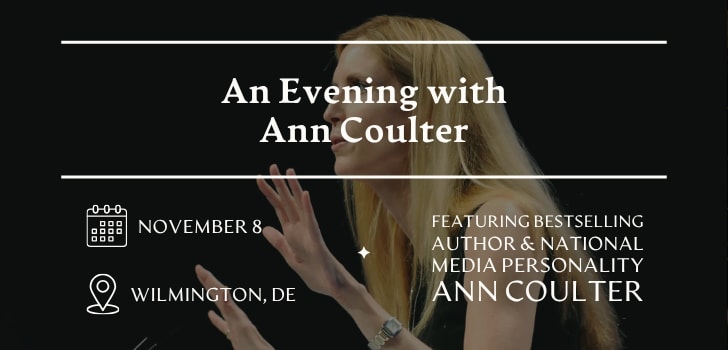|
 |
The Threat of Commercial Surrogacy
Intercollegiate Review | Conservatism's sharpest voices, curated weekly. ISI's weekly newsletter brings you the best in serious conservative thought.
The Dark Side of Commercial Surrogacy
Although commercial surrogacy is still illegal in some states, the practice is rapidly gaining cultural acceptance. Surrogates now chronicle their surrogacy journeys on social media, encouraging other women to sign contracts with agencies, while celebrities publicly celebrate using surrogates to grow their families.
These positive portrayals, however, obscure the grim realities of commercial surrogacy. In an article for First Things, Emma Waters illustrates the inherently exploitative nature of the practice. Surrogacy contracts give the intended parents nearly all the power—an imbalance that, as Waters shows, can lead to devastating outcomes for both the surrogate mother and the baby.
Waters also uncovers a troubling avenue for exploitation in commercial surrogacy: foreign nationals’ use of American surrogates to effectively purchase U.S. citizenship. A shocking 41 percent of international surrogacy cycles in the U.S. are for intended parents in mainland China, and some agencies openly advertise the resulting child’s U.S. citizenship as a selling point.
In response to such blatantly harmful practices, Waters concludes that we must “boldly declare that some human goods—mothers, children, citizenship, and the bonds between them—are too precious to sell.”
Read the rest of her article here.
|
The Inherent Goodness of Life
The modern West is gripped by a culture of death. Young adults are scared to bring children into the world, while assisted suicide is gaining acceptance—and even praise—as a supposed solution to suffering. While most people would still profess the value of life (at least after birth), it’s clear that society has forgotten a fundamental truth: it is good to be alive.
Writing for The University Bookman, John Ehrett defends the inherent goodness of human existence while reviewing Martin Lockerd’s recent book, Suicide in Modern Catholic Literature. Lockerd examines how 20th-century Catholic writers challenged the rising culture of death through their portrayals of suicide. For instance, J.R.R. Tolkien affirms the value of life by depicting Denethor’s suicide as an act of despair and a betrayal of duty.
Ehrett concludes by offering the classical Christian view of reality as essentially good. This inherent goodness, he says, can be “glimpsed everywhere around us.” As he suggests, literature like that discussed by Lockerd reminds us that endurance and hope are possible, even amid darkness.
Read the rest of Ehrett’s review here.
Compendium
Every article we feature here is available to read for free. Articles from paywalled publications are available through gift links.
Leah Libresco Sargeant, from her new book The Dignity of Dependence: A Feminist Manifesto, on the failures of liberal feminism. Read the responses from both Richard Reeves and Aaron M. Renn, followed by Leah Libresco Sargeant’s reply, in Fairer Disputations.
Daniel McCarthy, ISI’s Director of Publications and Editor-in-Chief of Modern Age, on the realignment of global politics in The Dispatch.
Ross Douthat hosts Helen Andrews and Leah Libresco Sargeant for a discussion on liberal feminism in American culture for his podcast, Interesting Times.
James Orr hosts Rod Dreher for a conversation on postmodernism and re-enchantment on his podcast, First Light.
Sohrab Ahmari on the reality of Zohran Mamdani’s historic campaign in UnHerd.
Colin Wright on the rise and fall of the transgender movement in The Wall Street Journal, free via archive link.
Robert Wyllie on how social media has turned political violence into entertainment in The Lamp.
Alexandra Wilson on the need for meritocracy in an age of AI in Engelsberg Ideas.
Upcoming ISI Events:
If you enjoy what you’re reading here, we invite you to engage with ISI at one of our upcoming in-person events.
An Evening with Ann Coulter | November 8 | Wilmington, DE
Join ISI for a reception and dinner with best-selling author and nationally renowned columnist Ann Coulter. Coulter will deliver an unforgettable keynote address on the role of conservative media in shaping the national conversation, drawing on her illustrious media career.
Visit our events page on our website to see all upcoming events.
This week, from ISI’s Digital Media:

In the latest episode of Project Cosmos, host Johnny Burtka is joined by Ross Douthat, Aaron M. Renn, Michael Miller, Matthew Walther, and Frank Hanna for a profound roundtable on one of the most urgent questions of our time: What does it mean to be a techno-optimist? Can technology serve the common good, or is it leading us toward dystopia?
View all Project Cosmos episodes here.
Subscribe to our YouTube channel for more content like this.
This week, from the Collegiate Network:
ISI’s Collegiate Network supports over 80 student-run publications across the country, empowering students to run independent college newspapers, magazines, and journals that report on important issues ignored by the mainstream media.
Reflections on Intelligence, with Thomas Sowell and Justice Clarence Thomas via The Stanford Review
A Hoover Institution tribute to Thomas Sowell reiterated the professor’s guiding mantra: intelligence alone is hollow without humility, discipline, and moral character to guide it.The Arrow of Christ’s Beauty via The Crusader Standard
On Pope Benedict XVI’s insight that true beauty is seen most fully in the crucified Jesus.Your Life, Your Rules, Your Existential Crisis: The Cost of Self-Made Morality via The Rostra
An examination of the rise of Existentialism in modern culture through media that glorifies self-invention and moral relativism.Foreign Lobbying in America—Are We The Client State? via The Free Pack
Confronting the Foreign Agents Registration Act and how it allowed powerful nations and organizations to shape American policy with little accountability.No Kings, No Clue via The American Postliberal
An argument that modern feminist and anti-Trump movements reflect a generational moral and cultural decline.
Visit our Student Journalism section to read more from the Collegiate Network.
Rewriting Reagan
Although nearly four decades have passed since Ronald Reagan’s presidency ended, the conservative movement still holds his memory closely. Each camp of conservatism today claims Reagan as its own, insisting that the Gipper embodied its ideals. But what did the Great Communicator himself actually believe?
In this week’s piece from Modern Age, Nicholas Mosvick reviews Craig Shirley’s 2024 book: The Search for Reagan: The Appealing Intellectual Conservatism of Ronald Reagan. Shirley highlights different episodes from Reagan’s career to define his distinctive brand of conservatism—one he concludes is classically liberal and “Lockean” in spirit.
To support this interpretation, Shirley cites Reagan’s nomination of Justice Sandra Day O’Connor, his creation of Martin Luther King, Jr. Day, and his opposition to a California proposition that would have barred homosexuals from teaching in public schools. Yet Mosvick claims Shirley overlooks Reagan’s social conservatism. Mosvick offers point-by-point refutations of several of Shirley’s key claims, contending that Reagan’s political philosophy cannot be reduced to Lockean liberalism alone.
Which vision of Reagan’s legacy do you think is most accurate? Read the rest of Mosvick’s review here on the Modern Age website.
Modern Age is ISI’s flagship publication. Visit modernagejournal.com and subscribe for a free daily newsletter.
“The mystery of human existence lies not in just staying alive, but in finding something to live for.”
– Fyodor Dostoevsky, The Brothers Karamazov
Celebrate America’s semiquincentennial with ISI and help shape the next 250 years of our country. Your support of the America 500 Education Fund will help ISI reach, teach, and launch the next generation of conservative leaders. Visit isi.org/america500 to learn more.



